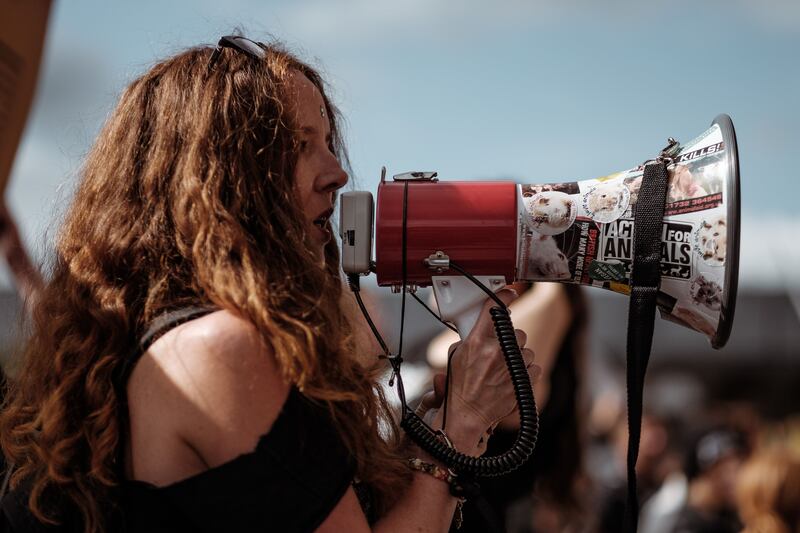The crazies are everywhere these days. Crazies are making up stories on the news. They are shouting in rallies, spinning tales of nonsense, seeing conspiracy everywhere. They are misinterpreting the Constitution, tweeting inflammatory remarks, legislating from the bench. And the worst of them couldn’t be stopped by laws or common sense from their harmful — even deadly — acts.
The crazies are everywhere. And we should know — because we are listening for the crazy.
Listening for the crazy can feel like a public service: We’re watchmen, harbingers. We listen for the crazy, and when we find it, we share it with everyone we know. “Look!” we post, “Look at how crazy these people are!” And we make a case for dismissing the entire content of an idea, platform, person, bill or party.
The thing is, listening for the crazy isn’t listening at all. And it isn’t helping.
Listening for the crazy is many things — validation, vindication, entertainment — but it isn’t listening.
Listening means letting our guard down. Listening means realizing someone else may be just as right as we are. Listening means patiently wading through the form, format or even phrasing used by the messenger and drilling down to the message. Listening means empathizing. Listening means seeking to understand.
Listening for the crazy, on the other hand, is scanning the headlines for the latest thing to roll your eyes at. Listening for the crazy is finding the one really, truly, stupid thing the other side just did that you can retweet or share. Listening for crazy is scrolling for evidence that the other side — of any debate, really — is completely batty. Cuckoo. Loopy. Harebrained. Deranged. Antisocial. Mentally ill. Psychopathic. Narcissistic. Wrong.
The thing is, we don’t listen for the crazy because we’re right. We listen for the crazy because no matter how right we think we are, we can’t make things better. Kids are still getting shot at school. Too many Americans are still in need of jobs. Immigration reform, health care reform and the educational system are in a perpetual state of stalemate.
If the crazies are to blame for massacres in our schools, then it’s not our fault.
If the crazies are to blame for homelessness, then there’s nothing we can do.
If the crazies are to blame for election results, policy fails and stalemate, then we can be forgiven for not having found answers by now.
When we listen for the crazy, we distance ourselves from what any truly rational person would really do: listen for a solution.
What if, under all the crazy, there is a gem of an idea? The beginning of a solution, the whisper of hope? What if, at the bottom of all that insanity, there is a perspective we hadn’t considered, a missing piece of the puzzle?
The wisest innovators look for great ideas from all sources. The best problem solvers create safe spaces in which no solution is too wild to be considered. And the greatest minds vet ideas, not appearances.
What if we had a whole country of watchmen who listened for the best ideas of others instead of their worst ones? What if we listened to people from all parties, all walks of life, all belief systems, ideologies and personal experiences, and served as harbingers of the good instead of the crazy?
Instead of listening for the crazy, let’s listen for the bits of what others are saying that just might be sane.


